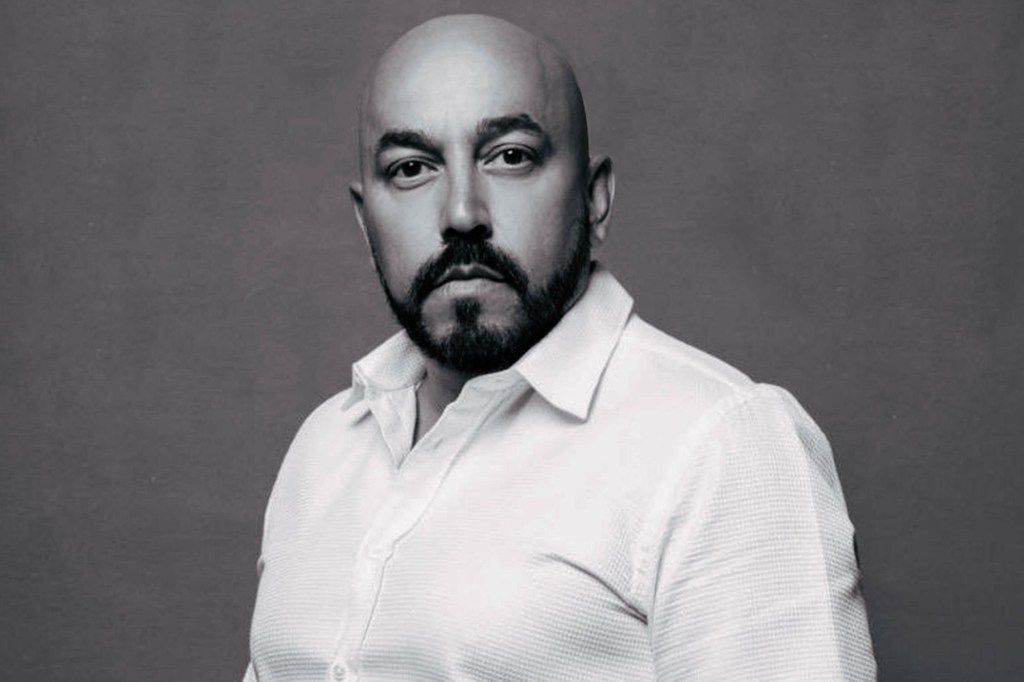Regional Mexican singer Lupillo Rivera has just released his autobiography Tragos Amargos: Gloria e Infierno de El Toro del Corrido, a retrospective of his life in which he makes deeply personal revelations — from a health issue that could jeopardize his career to details of his last encounter with his late sister, Jenni Rivera.
With her, he shared a touching moment just a few days before her tragic death in a plane crash, when at one of his performances — he writes — she arrived unexpectedly and went up on stage to sing with him “Tragos Amargos,” the classic song by norteño legend Ramón Ayala, which now serves as the title of his book.
With his raspy voice and unique style, Lupillo Rivera (real name: Guadalupe Rivera Saavedra) is known for hits like “El Moreño,” “Baraja de Oro,” “Fondo, Fondo,” and “Grandes Ligas.” His rise to stardom allowed him to help launch his sister Jenni’s career. The siblings worked at their family’s record label, Cintas Acuario, while waiting for their opportunity to record.
Through 33 chapters, Tragos Amargos (Bitter Moments) — released in Spanish the U.S. on Sept. 16 via Penguin Random House and soon to arrive in Mexico — offers an emotional journey through the artist’s childhood, his time at Cintas Acuario, and his complicated family relationships — especially with his father, Pedro Rivera, with whom he severed ties over business matters. He also discusses his past loves, confirming a previous relationship with pop star Belinda. (A Billboard message to a representative of the singer hasn’t been answered.)
“I just share what I lived, I talk about everything, and I know many people won’t like what I say,” Rivera admits. Below, he discusses some of those revelations with Billboard.
You worked alongside your father at Cintas Acuario. What did that experience teach you?
I learned the music industry from the ground up. From my father, I learned the value of hard work to support a family. Back then, my dad didn’t do anything wrong. He made deals to buy and sell songs. At the end of the day, artists sell their talent.
You had the chance to meet singers like Chalino Sánchez and Valentín Elizalde at Cintas Acuario, both of whom became major stars. What special memories do you have of them?
Chalino was an honorable man. He always carried a gun, but he never looked for trouble. He was serious in his dealings and incredibly talented. Many people think his singing style meant he didn’t know music, but he didn’t need to — he understood exactly what he had to do.
Things started going well for me in 1999, and by 2000, my career had taken off. Valentín used to complain to my dad, saying he only promoted me. I’d tell him to be patient, that his time would come. I knew he’d succeed. He had something special, his presence was striking. When he moved to another label, we competed at fairs and events, but we got along really well.
In your book, you mention recording demo vocals, which led to your father giving you the opportunity you’d been waiting for as a singer. But this happened during a difficult time in your life.
I became a father at a very young age. I was already signed up to join the Marines, but my girlfriend was pregnant. This was during the Gulf War; my friends who went didn’t survive. I stayed behind and started my music career. My relationship with Maria, my first wife, was wonderful for many years, though she didn’t want me to be a singer, even when I started earning a good income.
I used to look at my parents’ marriage, where they always worked together, and I wanted that with my wife. But it didn’t happen. I was unfaithful multiple times, and she didn’t deserve that — she’s a good woman. We had four daughters together. Later, I remarried and had two more children. I have six children and nine grandchildren, whom I love to spoil.
What’s the current situation with your career?
My father and I had an agreement to split the earnings from the music I recorded for Cintas Acuario 50/50, but he didn’t honor that. That’s why I decided to re-record all my music, so I could leave something for my kids. A record label approached me three months ago and bought 20 songs. The label is Hyphy Music, which specializes in acquiring master recordings.
Is this related to the lawsuit your nephews filed against your father over Jenni’s music?
My sister Jenni is no longer with us; it’s my responsibility as an uncle to guide them. This situation affected me because I also lost all my music [when Cintas Acuario kept it]. I don’t want to fight with my father or mother, which is why I decided to re-record my work.
Speaking of Jenni and her absence, in the book you suggest her death could have been foul play.
It was intense, very intense. Sometimes it’s better to protect those of us who are still here because we won’t win. You have to learn to lose and accept things in order to move forward. My father was determined to find out what happened, but I told him that if we kept pushing, it would destroy us all.
In another striking moment in the book you recount the last time you saw Jenni. You describe how she made a surprise appearance at your show.
That day in Texcoco, she asked for my forgiveness many times on stage. Back in the dressing room, she apologized again. I told her, “Don’t say that. Look at how much the people love us.” For me, that moment is more important and beautiful than anything else.
Why did Jenni ask for your forgiveness?
A lot of people have misinterpreted this, unfairly. During my last performance at what is now the Microsoft Theater, I invited my dad, and he told me he needed to talk to me. I remember he came into the dressing room and said, “You need to be very careful, son.” I asked why, and he replied, “Because they’re doing things to harm your career. Your brother Juan and your sister Jenni are doing things that aren’t right.” I remember crying and telling him, “Don’t worry.”
I always supported her, but she never invited me to one of her shows. These are harsh truths, but they’re real.
Some of your comments might upset people. Are you aware of that?
Yes. I was very careful with what I wrote. It’s not my intention to offend my sister’s fans. I’m just sharing what I lived. I talk about my ex-partners, everything. I know many people won’t like what I say. My professional life has been on top of the world, while my personal life has been in shambles — it’s always been that way.
In the book, you confirm rumors about a months-long relationship with Belinda. Will she be upset about the details you share?
I don’t want to speak poorly of Belinda in any way. She’s a very beautiful woman and part of this industry. I don’t want what I say to affect her, but I think she will be upset. Or rather her team will be upset. On that subject, the media painted me as obsessed, but it was a beautiful relationship.
You reveal that you have hearing problems and might have to stop singing.
When I got the news, I asked myself, “What am I going to do now?” I took such good care of myself, and it didn’t help. I didn’t want to tell my kids to avoid worrying them, but when [my older ones] found out, they wanted to live with me.
When I joined [TelevisaUnivision’s reality show] La Casa de los Famosos [in 2024,] I had already lost 40% of the hearing in one ear and 80% in the other. During the show, I lost it completely. I’ve been recording [music] with a very talented engineer who knows me well and helps ensure everything is perfect. Some might think my condition is from stage noise, but one doctor told me it’s stress-related — everything I’ve lived through is taking its toll at 53 years old.
What will you do if you can no longer sing?
A few weeks ago, I started producing for a young woman named Tita Medina. I saw her on social media. She’s not a professional singer but went viral, so I decided to contact her. I don’t see myself as a record executive, but I consider myself an advisor because of my experience. For new artists, we’ll work with equal profit splits — that’s only fair.
What will happen to the Rivera family when your father is no longer here?
I’ll be sitting back watching everything unfold from afar, eating popcorn.

Lupillo Rivera, Tragos Amargos
Penguin Random House








Comentarios